What is a Content Management System (CMS)?
A CMS is a server-based software application that uses a level of automation for the tasks required to effectively manage digital content, allowing multiple users to create, edit and publish. Content in a CMS is typically stored in a database and displayed in a presentation layer based on a set of templates.
Basic Features of a CMS
- Content Creation – allows users to easily create and format content
- Content Storage – stores content in one place, in a consistent fashion
- Workflow Management – assigns privileges and responsibilities based on roles such as authors, editors and admins
- Publishing – organises and pushes content live
- Content Control – a CMS keeps track of content and has core control functions such as
- Permissions – Who can see this content? Who can change it? Who can delete it?
- State Management and workflow – Is this content published? Is it in draft? Has it been archived and been removed from public view?
- Versioning – How many times has this content changed? What did it look like 3 months ago? How does that version differ from the current version?
Examples of CMS platforms
- Drupal
- Joomla
- Magento
- Wix
- WordPress
- CraftCMS
- Shopify

Benefits of a CMS
One major advantage of a CMS is its collaborative nature. Multiple users can log on and contribute, schedule or edit content to be published. Because the interface is usually browser-based, a CMS can be accessed from anywhere by any number of users.
The second advantage of a CMS is that it allows non-technical people who don’t know programming languages to easily create and manage their own web content. The WYSIWYG (What You See Is What You Get) editors of a typical CMS platform allows users to enter text and upload images without needing to know any HTML or CSS. When a company uses a CMS to publish its pages, it reduces its reliance on frontend engineers to make changes to the website, making it quicker and easier to publish new content.
Other advantages i
- Provides templates for publishing, making publishing easier and more consistent with existing structure/design
- Tag content with metadata, allowing the input of data that classifies content so that it can be searched for and retrieved.
- Allow collaborative work on content
- Integrated document management systems
- Provide extensions & plug-ins for increased functionality
What to look for in a CMS
Before choosing a CMS you will need to make a list of the business problems you are trying to solve as well as any specific requirements you may have. This will help you choose the right CMS.
CMS’s come in all shapes and sizes, each with its own set of pros and cons for your particular needs. Some are best for blogging, for example, and some are better for e-commerce.
Questions you need to ask yourself
Is the CMS easy to use?
The more popular platforms boast complete ease-of-use, and many of them make it possible for website owners to use them without having to have advanced technical knowledge, like coding. You want to make sure the content management system you choose makes it easy to upload and update text, add images and video, insert links, and make other content updates. It should be easy to add, customize, or remove web pages. Your CMS should be intuitive and user-friendly for both the most tech-savvy and least tech-savvy members of your staff. If it’s just you, you want to make sure you can use it quickly and without frustration, so you can concentrate the majority of your efforts on other aspects of the business and its marketing.
Is the CMS SEO-friendly?
It won’t do you a single bit of good to purchase or use a CMS that adversely affects your search engine optimization efforts or your rankings.
You want to check out SEO-related features, such as:
- How does the platform go about creating new URLs?
- The URLs should show up as www.thisisanexample.com/page/subpage, rather than gibberish–www.thisisanexample.com/page123wasd_12?id=xyz.
- Does the platform allow users to write unique titles and page descriptions?
- Does the CMS come with or integrate any SEO tools?
- The vast majority of CMS have plugins or extensions that allow the user to fully manage the website’s SEO, including page descriptions, titles, etc. Some platforms handle the technical SEO aspects for you.
Is the CMS within your budget?
Most content management system vendors will have the prices and packages listed on their websites, but there may be additional costs that need to be considered. Some CMS have licensing fees, such as a one-time fee for purchasing the software license. Others have fees for updating, upgrading, or adding extensions/plugins. When considering a CMS, ask the vendor what all of the fees are.
How secure is the CMS platform?
Content management systems are one of the biggest targets for hackers and other types of cybercriminals, and the most popular ones have some serious security issues that need to be taken into account.
Do some research into the platform past security issues. Find out what security features the CMS has in place and learn how to secure your CMS.
In the event that the CMS does actually get hacked, what does the vendor do to rectify the issue and prevent further attacks? Find out what other users have to say about the security of the platform. If they are required to make regular upgrades before they can install security patches, you are better off going with a different CMS.
Does the CMS allow integration of web analytics?
Regardless of which CMS you go with, you want to ensure the platform grants users the ability to track key metrics and analytics, such as conversions, page times, site visits, and more. You want to be sure your content management system integrates with analytics tools like Google Analytics. Some platforms, like WordPress, also have their own metrics and analytics systems to use in addition to these.
Does the CMS platform offer technical support?
While there are many popular content management systems out there that may have all the features you’re looking for, not all of them are the best when it comes to providing technical support to their customers.
Look for one that has multiple ways of contacting them, from email to phone numbers. You want one that offers support 24/7 or at least responds in a timely manner. You also want to look for one that has does not have a history of hacking, pages being lost, content being deleted, or site crashes.
Does the CMS allow the use of multiple websites or pages?
If your business manages multiple websites, you want to pick a CMS that will allow you to integrate and manage all of them from one place.
This will allow you to edit these websites from that one dashboard, rather than having to log into multiple sites to get things done. Not only is this obnoxious, but it’s also time-consuming and takes away from you being able to conduct other business or do other types of marketing.
Additionally, you will likely want a website that allows users to have multiple pages and blogs, rather than just one static site.

If you are looking to bring your website up to date, are looking for an easier solution for your e-commerce site or want better functionality, contact us and we will help you take the next steps.
